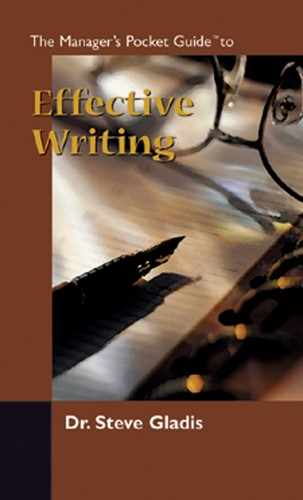0%
81Chapters
0-1Hours read
0kTotal Words
Book Description
Written communication is prevalent at most levels of business, but especially at the managerial level. Your writing may be grammatically and logically sound, but is it effective? Is it conveying your message with the concision and accuracy that makes you an effective writer? Whether you're a manager in charge of a group of writers, or a person interested in just improving his or her writing skills, The Manager's Pocket Guide to Effective Writing will help you write better using easy, practical, how-to steps that will guide you towards more effective writing, which will, in turn, allow you to make a better impression on others.
